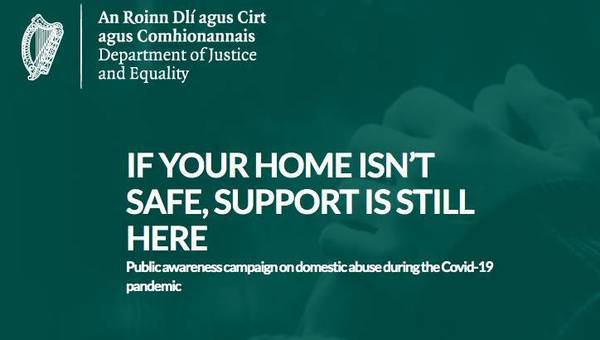In a previous article, we looked at some of the restrictions on movement introduced in Europe to try to contain the COVID-19 epidemic across the continent. These social distancing measures are either enforceable by law or are best practice guidelines, which governments are asking residents to follow. In both cases, the focus is on minimizing social contact by severely limiting or reducing movement away from one’s principal place of residence.
***

Since the start of the COVID-19 pandemic, countries across the world are seeing huge increases in domestic abuse. In the UK, the Counting Dead Women project estimates that there has been at least a doubling of domestic killings since the start of the UK’s lockdown. French authorities are reporting at least a 30% increase in domestic violence cases over the same period last year. The Spanish ministry responsible for gender equality announced that calls to the domestic abuse helpline increased 16% between 14 and 29 March when compared to the same period in February, before the lockdown started.For victims of domestic violence, the home can be the most dangerous place. Many fear that these “stay at home” rules will result in many more women and children being killed or seriously harmed—physically or mentally. Isolating victims is central to the controlling, coercive and abusive behaviour of abusers. Because the new social distancing guidelines increase the barriers for victims seeking help and reduce the opportunity for third parties to intervene, governments across Europe are now looking at ways to provide support to people in potentially dangerous situations.
So how are governments responding to protect the life and wellbeing of those facing domestic abuse? First, they are confirming that the restrictions do not apply to anyone at risk of violence. In England, for example, Regulation 6(m) of the Health Protection (Coronavirus, Restrictions) (England) Regulations 2020 provides that leaving one’s home “to avoid injury or illness or to escape a risk of harm” is lawful.
But these responses, and those of governments across Europe, have limitations. With reduced public transport, how will victims leave their homes? What reason will a victim give to an abusive partner for leaving the home? With the usual centers that provide emergency housing to victims of domestic violence already full in many cases, where will the newest victims seeking help be housed? Given many public services operating on reduced footings, there are concerns that people might think resources for domestic abuse support have also been cut.
To respond to some of these concerns, two main responses are evident. The first is increasing reminders to the public that domestic abuse support services are being maintained and making it easier for victims to contact services; the second is increasing capacity to house victims of domestic abuse. In Belgium a hotel has been converted into a temporary shelter for victims of domestic abuse. Empty hotels in France and Italy are similarly being used as temporary shelters, with local, regional and national government providing funding for the scheme. Abuse victims in France are encouraged to use a code word to alert pharmacists to their situation, a new text message service to report abuse has been launched, and assistance points have been set up at supermarkets. In the UK, the government is launching a media campaign to raise awareness of the available resources and is providing further financial support to domestic abuse helplines. At the same time, women’s rights groups are pressing the government to work with hotels to use the spare capacity present in the hotel industry to house people at risk of domestic abuse.
Finally, in Ireland, as part of an initiative called Operation Faoisimh (or, translated, Operation Relief), community and voluntary organisations are collaborating with the government on a new media campaign to alert the public about how domestic and sexual violence support services from State agencies and the voluntary sector have been adapted and actually increased during this difficult period. One effective, but disturbing 30-second advertisement places the viewer as a witness to abuse through an interrupted video call.
Sadly, as with much to do with COVID-19, we might never know the full toll it will take on victims of domestic violence.
________________________

Clare O’Hare is a lawyer and doctoral candidate at the University of Notre Dame Law School. Clare’s research focuses on the growth of specialized commercial courts in the context of cross-border commercial litigation. Clare is a Graduate Fellow at the Nanovic Institute for European Studies and an active member of the Keough-Naughton Institute for Irish Studies’ Graduate Student Working Group.
Clare spent the majority of her career in legal practice with Freshfields Bruckhaus Deringer in London and Dubai, where she worked on complex international financial transactions and insolvency matters. Prior to joining the Law School, Clare received an MA in Political Science from Notre Dame in 2019. She holds graduate degrees from The Fletcher School at Tufts University and the University of Cambridge. Clare completed her undergraduate degree in Law & French Law at Trinity College Dublin.